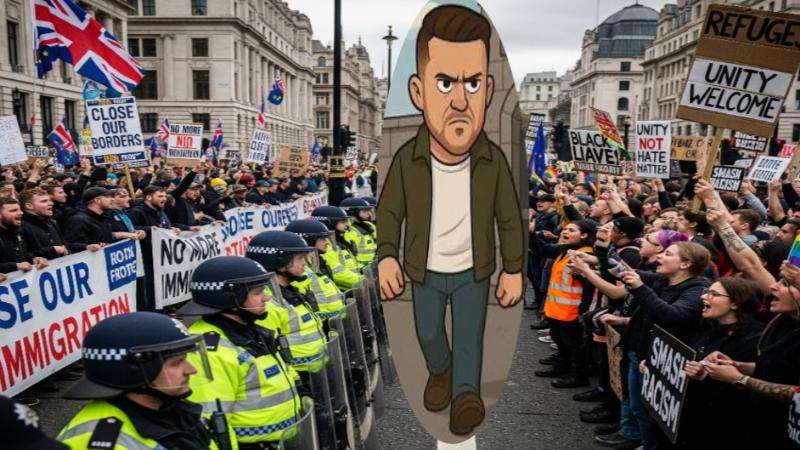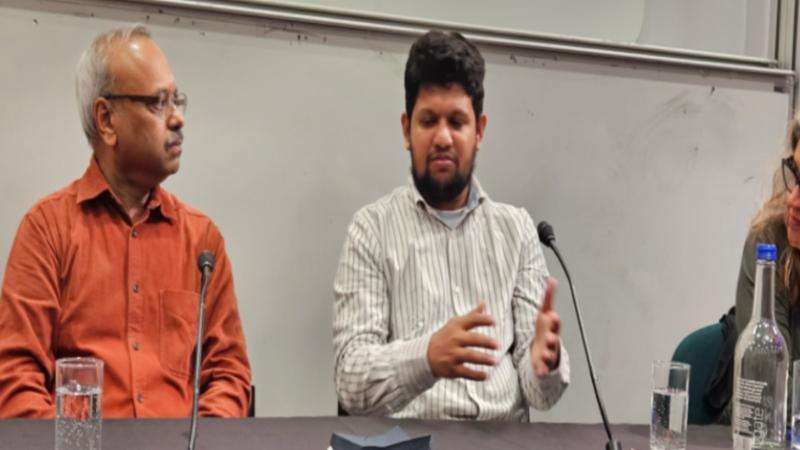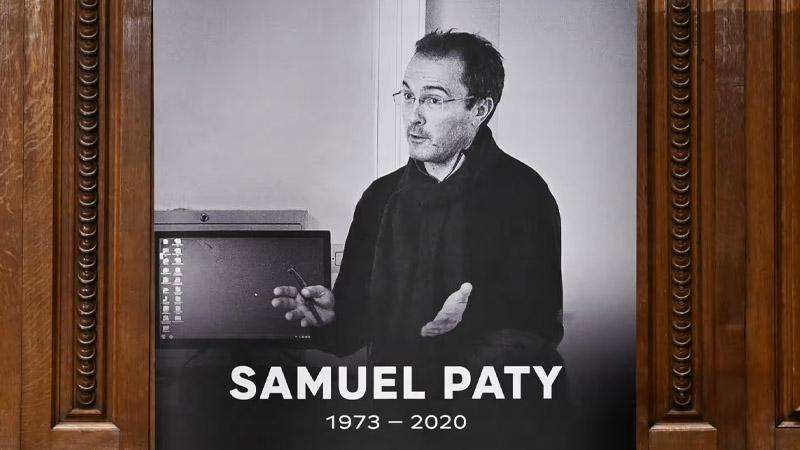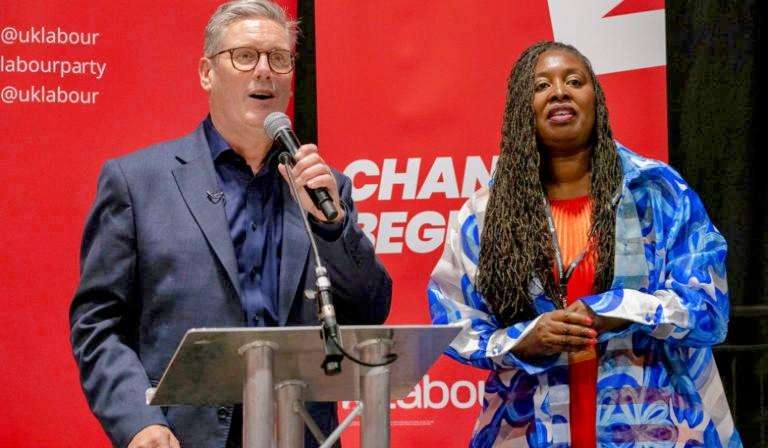In October 2020, the murder of French teacher Samuel Paty, beheaded by an Islamist terrorist, was triggered by a lie. The 47-year-old history and geography teacher was targeted following a false accusation by a 13-year-old student, claiming Paty had discriminated against Muslim students during a moral and civic education class.
The girl told her father that Paty had ordered Muslim students to leave the room before showing caricatures of the prophet Muhammad from *Charlie Hebdo*. However, she hadn’t actually attended his class that day and fabricated the story to cover her suspension for misconduct.
Paty had used the images to explore ethical questions around free speech, asking students to consider the phrase “to be or not to be Charlie?” in reference to #JeSuisCharlie, a hashtag supporting *Charlie Hebdo* after a terrorist attack on its offices in 2015.
But Paty had not ordered any children to leave the room – instead he had told them they could turn away if they thought they would be offended by the images.
The teenager could not have known that the story she told her father would spark a chain of events that would lead an 18-year-old Chechen, Abdoullakh Anzorov, to travel 100km (62 miles) from his home in Normandy to kill the teacher after her furious father posted the lie on social media.
On Monday, the father, Brahim Chnina, will be one of eight adults – seven men and a woman – on trial in connection with the murder. Chnina is accused of association with a terrorist organisation after allegedly launching a social media campaign against Paty, including publishing videos online attacking Paty and designating him as a target by giving precise information about his identity and place of work. Prosecutors say Chnina was in contact with Anzorov nine times before the killing. He has denied the charge.
Abdelhakim Sefrioui, founder of the pro-Hamas Sheikh Yassine collective in France, which was dissolved by the government after the murder, is accused of participating in the preparation of a video presenting “false and distorted information intended to arouse hatred” towards Paty. In the video, Sefrioui described Paty as a “thug”.
During questioning, he told police he would never have posted the video had he imagined there was “one billionth of a chance” of provoking the teacher’s killing. Instead, he said he and Chnina were calling for disciplinary sanctions against Paty.
His lawyers describe the charge against him as an “intellectual and judicial aberration”, arguing there is no proof of contact between him and Anzorov.
Six others are charged with association with a criminal terrorist group and risk up to 30 years in jail if convicted. Two of Anzorov’s friends have been charged with complicity in Paty’s murder, the most serious charge carrying a 30-year prison sentence.
Chnina’s daughter, whose story sparked the tragedy, and five other former students aged between 13 and 15 at the time of the killing, were tried last year. Chnina’s daughter received an 18-month suspended sentence for making “slanderous and false accusations”.
The five other teenagers were found guilty of criminal conspiracy with intent to cause violence. The girl, who had been suspended from school because of repeatedly failing to attend lessons, was reported to have told police she lied because she wanted to avoid disappointing her father.
“She would not have dared to confess to her father the real reasons for her exclusion shortly before the tragedy, which was in fact linked to her bad behaviour,” Le Parisien reported.
Chnina subsequently shared a video on Facebook in which he denounced Paty and called for him to be sacked from the secondary school. A second video posted on social media accused Paty of “discrimination”. Chnina complained to the school and the police, claiming Paty was guilty of “diffusing a pornographic image” and was “Islamophobic”. The issue snowballed on social media; 10 days later, Paty was dead.
One of the convicted teenagers, had given Anzorov a description of Paty, pointed out the route he took on leaving the school and recruited other students to keep an eye out for the teacher.
Anzorov, 18, a radicalised Islamist who had arrived in France aged six with his Chechen parents and had been granted asylum, was shot dead by police after the incident.
The town of Conflans-Saint-Honore is a civil party in the case. Laurent Brosse, the local mayor, said: “ For the vast majority of us, across all generations, the murder resonates as an attack on freedom, an attack on each and every one of us, on our society as a whole, on the values of our Republic, on our fundamental rights.”
Brosse said: “Samuel Paty embodied the values of our Republic. Through his teaching, he sought to awaken the critical spirit of his pupils. He showed them the importance of debating ideas, mutual respect and tolerance.”
The school will be named the Samuel Paty School from next year.
_2.jpg)
_3.jpg)


_3.jpg)



.svg)


